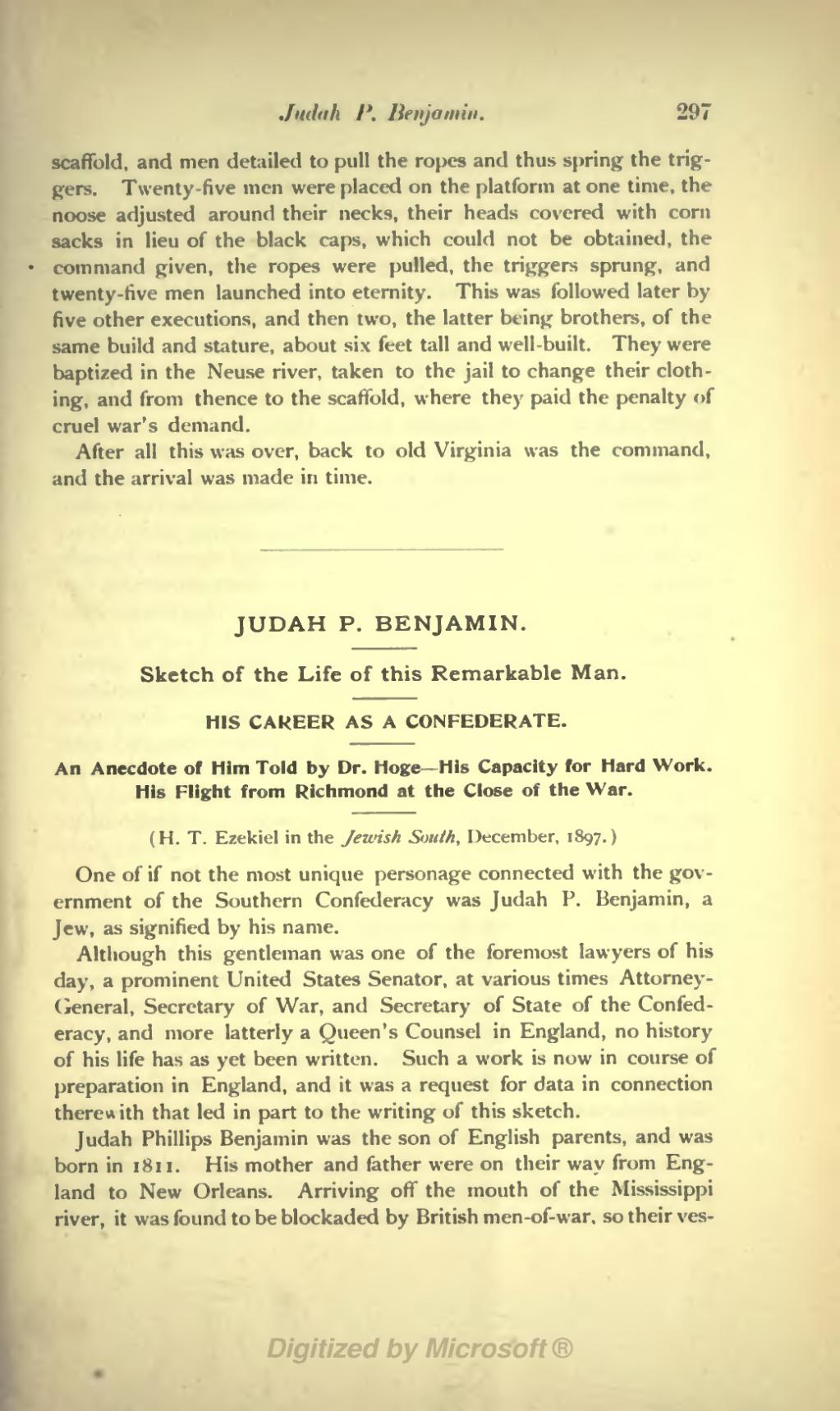r. it, ni'tntui.
scaffold, and men detailed to pull the ropes and thus spring tin- trig- . Twenty-five men were placed on the platform at one time, the noose adjusted around their necks, their heads covered with corn ks in lieu of the black < aps, which could not be obtained, the command tfiven, the ropes were pulled, the triggers sprung, and twenty- five men launched into eternity. This was followed later by live other executions, and then two, the latter being brothers, of the same build and stature, about six feet tall and well-built. They were baptized in the Xeuse river, taken to the jail to change their cloth- ing, and from thence to the scaffold, where they paid the penalty of cruel war's demand.
After all this was over, back to old Virginia was the command, and the arrival was made in time.
JUDAH P. BENJAMIN. Sketch of the Life of this Remarkable Man.
HIS CAREER AS A CONFEDERATE.
An Anecdote of Him Told by Dr. Hoge His Capacity for Hard Work. His Flight from Richmond at the Close of the War.
(H. T. Ezekiel in the Jewish South, December, 1897.)
One of if not the most unique personage connected with the gov- ernment of the Southern Confederacy was Judah P. Benjamin, a Jew, as signified by his name.
Although this gentleman was one of the foremost lawyers of his day, a prominent United States Senator, at various times Attorney- General, Secretary of War, and Secretary of State of the Confed- eracy, and more latterly a Queen's Counsel in England, no history of his life has as yet been written. Such a work is now in course of preparation in England, and it was a request for data in connection therewith that led in part to the writing of this sketch.
Judah Phillips Benjamin was the son of English parents, and was born in 1811. His mother and father were on their way from Eng- land to New Orleans. Arriving off the mouth of the Mississippi river, it was found to be blockaded by British men-of-war, so their ves-
